To celebrate the 10th Anniversary of Heroes Rise, we’ve commissioned brand new game art for Heroes Rise: The Prodigy, new line-art headers for the original Heroes Rise trilogy, and placed all the Sergiverse games on sale until July 21st! We’re proud to publish author Zachary Sergi’s reflections on this occasion below.
***
The year was 2011. I was one year out of college, trying to find my footing in Los Angeles as a TV writer. I had hustled my way into a Disney Channel original movie think tank, a process that introduced me to my first (short-lived) manager. This matters because that manager did one thing for me: he told me a new company called Choice of Games was looking for fiction writers to pitch ideas for interactive novels.
I had studied fiction all through high school and college, and had written contemporary novel-length works before. Far more importantly, I grew up loving to invent my own RPGs with my action figures and obsessing over pathways in the Goosebumps: Reader Beware…You Choose The Scare CYOA-style novels. I even tried my hand at constructing my own interactive stories in elementary school: a teen slasher called Killer Central and a superhero team-up called The Mega Force Saga (lol).
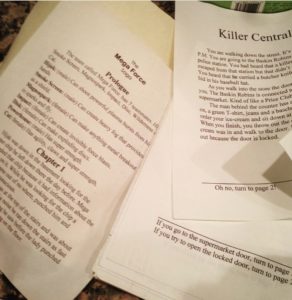
A lifelong Marvel Comics reader (X-Men, specifically), I also always had a super hero world in my head, one based on an American Idol style competition that funneled into The Avengers, but that was also queer and diverse (having grown up as a gay teen on the Lower East Side of Manhattan, this kind of inclusion felt mundanely everyday to a naively-younger me). While I kept building this superhero world in my mind, I had never actually written about it—my high school and college classes demanded contemporary fiction only, at the time.
Heroes Rise was one of a few pitches I submitted to Choice of Games, expecting another rejection to add to my growing pile—but they bought it. Now, at age 23, I had agreed to write a full length novel, in a genre I had never written in before, in a format that didn’t really exist in a way I could find at the time, in a coding-format language I didn’t understand, for a brand new company, which would publish exclusively digitally on an app. For context, I still had a Blackberry then. I didn’t really even understand what an app was, and in those days it was kind of unfathomable that anyone would pay for one, since virtually all apps came free.
Basically: I thought there wasn’t a chance in hell anyone would actually read this novel. The pressure was off, in that way. I was free to just write what was in my head, without worrying if it was commercial or sellable or fitting within any typical genre confines.
The learning curve was steep, but I found I really enjoyed writing in this coding-formatting, half-game, half-novel style. My brain swam in both lanes faster than I expected. Choice of Games had developed a very clean language and an even cleaner vision for choice pacing/styling (which has evolved over time, but the core remains equally pristine). I also felt free not having to live within the perspective of a static main character—that had always been the weakest point of my early fiction writing, but the second person MC openness meant I didn’t even have to worry about that. The perspective had to be weak, to allow the reader to fill in the cracks.
The biggest challenge was trying to outline an enticing story full of plot twists and interesting characters, but that also allowed for some degree of reader control/flexibility. I saw my primary job to tell the best story possible, and my secondary job to build compelling choices and game structure within that story. I found the choices that mattered most to me were defining the Main Character, navigating their relationships, and encountering morally-loaded sociological dilemmas. The choices were designed to make the reader stop and think, not necessarily have vast control over the story. (This has become a cornerstone of my own particular interactive style, which is subjectively loved and hated).
I also know that, during that year, I was reading the 4th-7th Harry Potter books for the first time. I had read the first three when they came out, but literally couldn’t carry the larger hardcovers on the subway with me. Looking back, I think you can see the more whimsical spirit in that first Heroes Rise as a result. I was also really miserable in my personal life the first couple years out of college, graduating into a recession and living in a city where I didn’t have many existing friendships. So much of my drive for a big writing career, a big love, and a sense of belonging in Los Angeles was infused into The Prodigy. Even though this novel wasn’t real-world contemporary, so much of who I was and what I knew was still infused. Grandma was based on my own, Jenny was inspired by my dearest friend at the time, Chelsea. I was living with my parents (who I adore), but needed some self-defining separation from. And then the orphan, Jury, and Victon vibes came straight from Harry Potter. Then, as always, there’s X-Men social allegory and The Avengers fame fun.
It was a genre-blending brew—turns out, that’s another cornerstone of what I write. The final element came straight from college, where I took a class purely studying utopian literature (and discovered my then-much-lesser-known favorite novel, The Handmaid’s Tale). Writing about societal constructs via utopian/dystopian themes was also something I always intended to explore. Looking back, Heroes Rise: The Prodigy was a mad explosion of myself coming together for the first time, empowered by a company that didn’t edit me into any corners (to their infinite credit), and from a space where unafraid to fail—because to me back then, failure was already implied. I remember saying to my mom late one night: “No one will read this, but if I die tomorrow, I at least got to write something fully and wholly me.”
Naturally, absolutely zero people in my life understood what I was doing, literally or career-trajectory wise. But I was 23. I was allowed a year to write a passion project, especially one that was paid. Life would go on afterwards.
Sometime before the July 2012 release, I got an iPhone (so I could buy the book, mostly). I was also blown away when the cover drafts came in—it was the first time I had ever seen a character I wrote brought to life visually. That one detail emboldened me enough to try and treat this like a traditional book launch—I made social media accounts and planned a little book launch party at the writing office I used then. People came to the party, but no one understood what the book was. Is it a game? Is it a novel? Wait, it’s an app? It’s about superheroes, but it’s not Marvel or DC? And it’s about societal allegory and fame culture? Well, thanks for the free cheese board…
I was right about one thing: to this day, the majority of my family and friends haven’t read Heroes Rise. But do you know who did? All you readers who somehow found The Prodigy (I still don’t quite know how that happened). Reader emails and messages started coming in. Fan art of the characters started popping up (mind fully blown every time, with that one). People from other countries were somehow reading it. I even got some hate mail and awful reviews—but I was thrilled. People cared enough to do all that? Turns out I was very wrong about no one reading this thing. I was so startled that this interactive novel on this new platform reached anyone, especially something that was so idiosyncratically me. It was a revelation, one I’m grateful for to this day.
I guess I should say, even though I didn’t expect this outcome, I did hope (and plan) for it. I had designed Heroes Rise as a trilogy, in typical Young Adult fiction style. (Oh yeah, I started calling my stuff Young Adult too, because it was easier to “sell and pitch” myself in the various businesses. I still don’t know if Heroes Rise is really YA, but I also don’t think it matters). I didn’t pitch The Hero Project in the original Heroes Rise because I didn’t want to potentially give away my best idea to an unknown home. But this home had made itself fully known.
Thankfully, Choice of Games agreed. Not only that, but the founders of the company saw the ravenous need for queer, diverse, and inclusive representation in superheroes and gaming. This was years before those things became “trendy” marketing talking points—and I still wish we were further into this movement, especially amidst all this recent queer book-banning.
Mostly, I tried to listen to the audience, thankful for having one to begin with. I knew I needed to evolve the overly-simplistic gaming structure and choice style (especially now that I actually knew what I was doing). In the decade since, I’ve made huge steps forward (and sometimes backward) working out ways to expand interactivity—while still meeting the publish-once-a-year deadlines. I also wrote so many storylines requested by you readers: romances with Jenny, Jury, and Prodigal (which never would have occurred to me). I also remember posting screenshots of homemade strategy guides, then getting dozens of emails from blind readers asking for text-versions so voice-assistive technology could read them aloud. We had blind readers? Time for representation in that community (hello Weaver, among others).
I also learned how to navigate the tricky waters of writing about societal and political constructs, sometimes favoring my own beliefs unfairly. This is how I came to define my mission statement as a writer: to always empower readers; to expose you to new worlds & ideas and let you decide for yourselves what to think & believe. Additionally, I always focus on LGBTQIA+ representation and exploring issues of intersectional inclusion, funneled through a (usually Young Adult) genre-mashing blend of humor, action & drama.
Looking back on these early days building out the Sergiverse (as social media coined it, and I wholeheartedly adopted) via the Heroes Rise Trilogy, The Hero Project Duology, and the Versus Trilogy, I mostly wish I had the stamina I did in my 20s to write 150+ thousand words a year while also developing TV shows. (Now in my 30s, my body and brain require a lot more care). There’s so much I’d handle differently with the benefit of hindsight, but mostly I’m proud of what we all built together.
Having now finished the eight-part epic I dreamed up in my 20s last year with Versus: The Deathscapes (that warrants its own essay, let me tell you), I’m lucky to have gotten the chance to help establish another interactive precedent. I wrote Heroes Rise: The Prodigy when I was 23, and ten years later at 33, I got to publish a first-of-its kind hardcover Interactive Novel, Major Detours. And next year, my first-ever Hosted Games project will publish on January 5: Fortune the Fated, where I’m experimenting with yet another totally-different (for me, at least) interactive plot structure.
Exactly a decade later, I also have another superhero world bubbling and half-written. It’s in the same spirit at Heroes Rise, but with a focus on allegory for professional sports (if you’re thinking The Hero Project: The Legend of Korra meets Friday Night Lights, you’d be right). I’ll hopefully find a publishing home for that project soon, but it strikes me now, how I feel compelled to return to this spirit of storytelling a decade later—kind of like a call to come home.
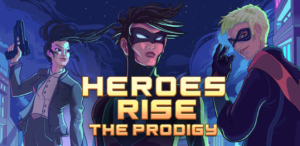
Truly, every inch of this started with Heroes Rise: The Prodigy and the visionary founders of Choice of Games. Those same founders have been gracious enough to create a special 10th Anniversary cover for The Prodigy, one that captures its spirit perfectly. I think it’s maybe time I fully re-read it, myself? As always, I have the same question: Will you take this journey with me?



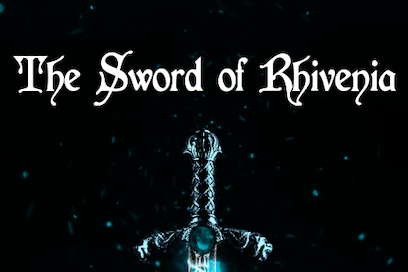
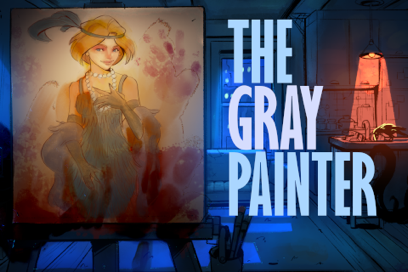
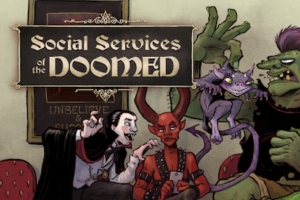
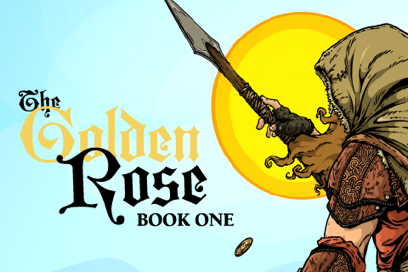
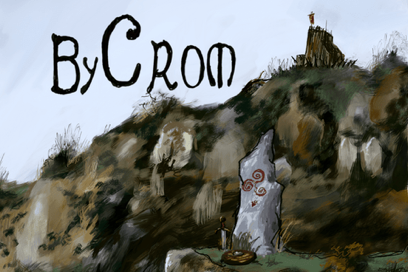

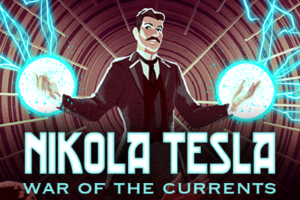
 Steam
Steam Twitter
Twitter Facebook
Facebook Tumblr
Tumblr RSS Feed
RSS Feed

